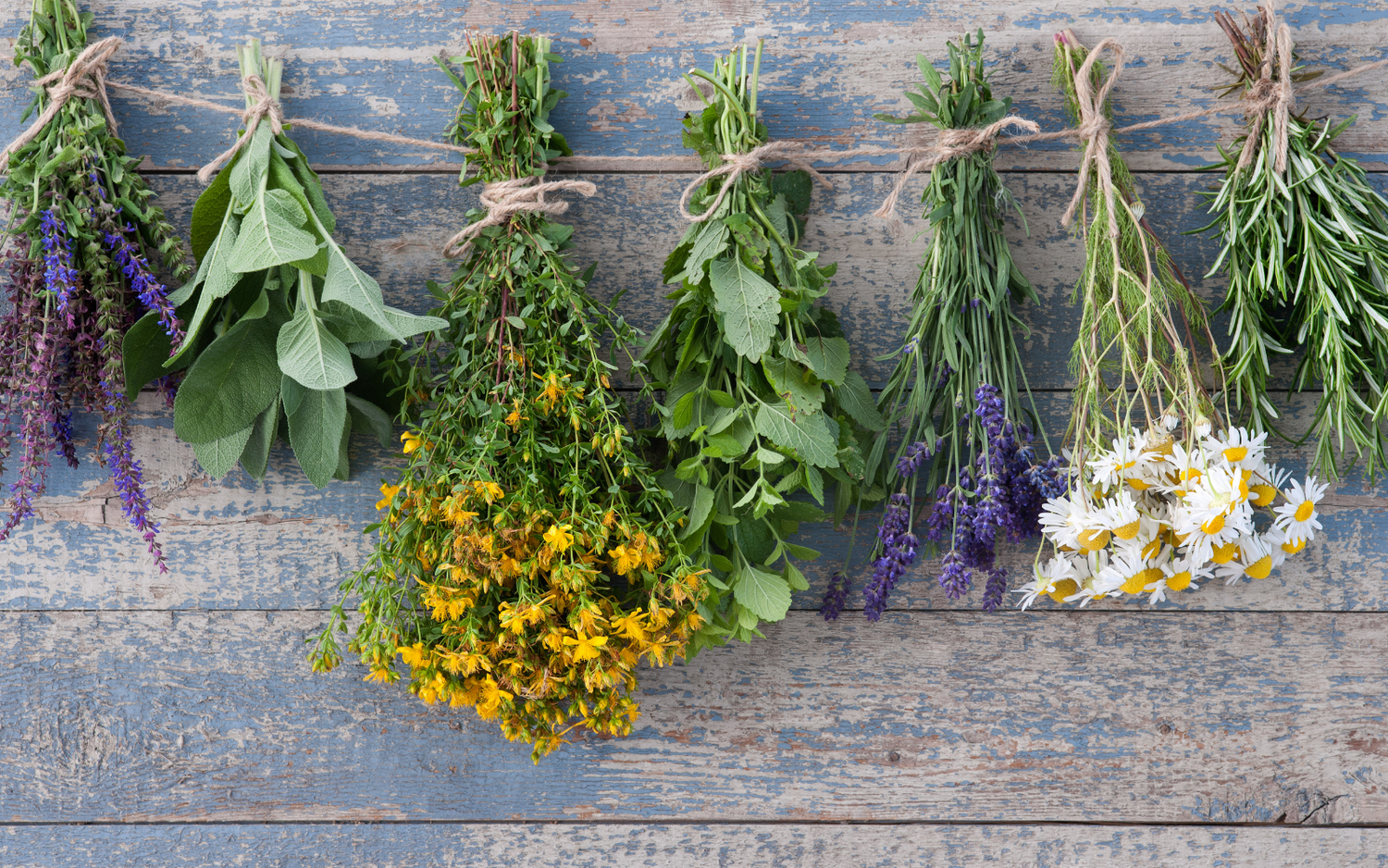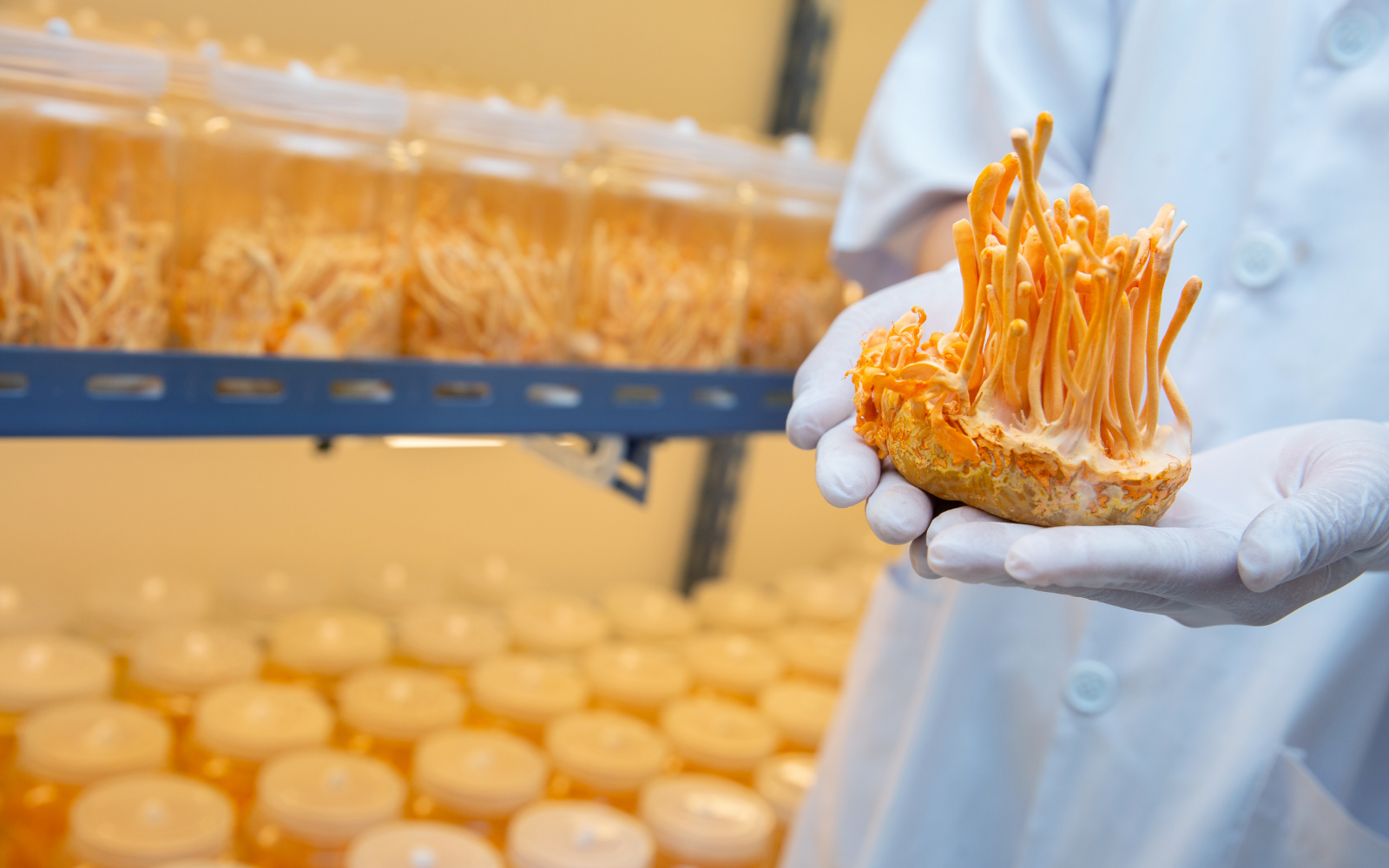Ancient remedies for modern-day ailments. In today’s modern world, herbs can help counterbalance the environmental impact our bodies endure as a result of poor eating habits, unclean air, stress, and general exposure to germs. In addition to improving immune function, the herbs mentioned here may also help your body treat inflammation and other chronic health issues. Herbs are also useful in keeping you health during flu season, and can offer your best shot at defeating the common cold.
Reasons You May Be Getting Sick
Each human body is a unique combination of genetic and environmental factors that dictate our general well-being. While you may be pre-disposed to certain conditions due to hereditary factors, environmental factors and lifestyle choices are major contributors to overall health. Your immune system – and its response to toxic attack – can be strengthened or weakened based on what the body takes in (and avoids). We all know that habits like smoking or heavy alcohol consumption are generally bad for your health. However, smoking can specifically impact immunity by decreasing the presence of oxygen in the blood and constricting vital blood vessels from transporting much-needed white blood cells to combat infection. Similarly, while moderate alcohol consumption is not necessarily dangerous, binge drinking can dramatically decrease immunity (while causing a host of other health issues as well). Other environmental issues that impact immunity include sufficient hydration, as well as the use of immune-boosting supplements including vitamin C, turmeric, and vitamin B6. Of course, maintaining a healthy diet is a major component to overall immunity.
Healthy Foods for Immunity
Clean eating with an emphasis on fresh, unprocessed, wholesome foods is a key ingredient for boosting immunity. Specifically, “adaptogens” are foods and herbs that contain properties that allow you to experience what is known as “non-specific resistance” in stressful situations. Some immunity superfoods include any of the following:1. Garlic
Garlic is used in virtually every type of cuisine around the world – and for good reason. The compounds found in garlic can not only help lower blood pressure and promote cardiovascular health, but can boost immune response as well. Specifically, the element known as allicin is comprised of sulfuric components and assists the white blood cells in their immune-fighting response.2. Honey
It’s not just for bees. Honey has been regarded for millennia as a superfood – and has most recently been the subject of studies related to not only its immune-boosting ability, but its effectiveness in treating inflammatory response, non-healing ulcers and helping with the healing of serious wounds. (1)3. Fresh fruit
The benefits of fresh fruit are quite pervasive, particularly concerning the immune-boosting power of vitamin C-rich citrus varieties like grapefruit, oranges, tangerines, and lemons. Other fruits known for helping with immunity include papaya and kiwi.4. Vegetables
Finish your vegetables! Little did you know, this sage wisdom invokes more than just an eye-roll in the second hour stuck at the dinner table. In fact, frequent consumption of vegetables can promote an increase in white blood cell activity, which in turn helps your body fight off infection and stay healthy. Immunity-boosting foods include broccoli, bell peppers, spinach, and any other green leafy varieties.5. Green tea
Green tea is known in many countries as a go-to remedy for many common ailments and is chock full of antioxidants and flavonoids that work to give your body the immune support it needs. Specifically, green tea contains a powerful antioxidant known as epigallocatechin gallate – which is generally not found in more-processed black tea varieties.6. Some additional ideas
Fruits and vegetables aside, immune-fighting foods include shellfish (crab, lobster, mussels), yogurt, and many types of herbs like turmeric and ginger. Also, snacks like sunflower seeds and almonds are a great source of vitamin E, an (you guessed it) immune-boosting nutrient.
9 Immune-Boosting Herbs
The herbal approach to immunity is a safe and effective way to give your body the support it needs to keep you free from colds, flu, and infection. Also these adaptogenic herbs work to reduce stress and the adrenal responses caused by increased ecological triggers:1. Ginseng
Ginseng is an herb used historically in Chinese medicine for its anti-inflammatory and preventative properties. More specifically, ginseng is known to promote homeostasis in the human immune system, specifically by regulating the immune cells known as T-cells, dendritic cells, “killer cells,” macrophages, and B cells.2. Ashwagandha
It’s quite a word – and quite an herb! This plant has quite useful roots and berries, which have been relied upon for their medicinal properties since ancient times. As concerning immunity, ashwagandha is known to promote cell-mediated immunity for thousands of years, as well as enhanced mental health and a feeling of overall peacefulness. Ashwagandha is also thought to be anti-inflammatory and antibacterial.3. Oregano
Couple it with some garlic (discussed above), and your immunity should be unstoppable. More than just an aromatic dinner accouterment, oregano is an immunity promoting super-herb. In oil form, it contains anti-microbial properties and works to clear potential infection risks from the skin surface.4. Licorice
Licorice root is a helpful antimicrobial agent and can even help with inflammation within the body. In fact, medical providers have used “licorice infusions” to enhance the cellular production of lymphocytes in order to jump-start an immune response. Moreover, many medical providers describe licorice as an immunomodulating agent, promoting homeostasis.5. Turmeric
Turmeric is another example of an herb used as both an accompaniment to cooking and an immune-boosting superfood. Specifically, the active component of turmeric – known as curcumin – has been regarded for years as not only a cooking spice but one with anti-inflammatory properties.6. Astragalus
Astragalus has been used historically in ancient Chinese medicine for a variety of purposes – and there are more than 2,000 species of this herb! (2) Not only has this herb been used for gastrointestinal wellness and preventing upper respiratory tract infections, but its immune-boosting properties are well-documented. (3)7. Elderberry
Elderberry syrup and lozenges are used quite often as a preventative measure to combat the cold and flu virus. Elderberry is also quite popular for its antioxidant properties and its ability to treat pain in sciatica and various other nerve pain disorders.8. Echinacea
This herb is used commonly in conjunction with elderberry syrup or tea. Unlike many Chinese remedies listed above, echinacea is indigenous to the Rocky Mountain region of the United States, as well as Canada and Europe. This herb is known to treat infection and was historically used on the Great Plains to combat the spread of potentially deadly bacterial and viral infections.9. Medicinal Mushrooms
Mushrooms have been used in traditional Chinese medicine for generations and are considered a natural and safe option for anyone seeking a non-pharmacological immunity boost. Mushroom varieties including reishi, turkey tail, shiitake, and maitake contain major immune-boosting properties, particularly due to the presence of fungal beta-d glucans.When deciding upon the best option for your immunity and overall health, be sure to consider the benefits of the herbs and foods listed above. Trust us, your body will thank you.



